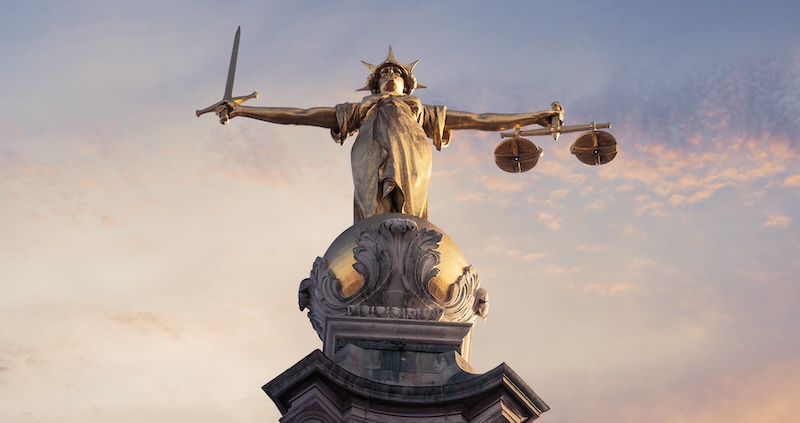Penultimate-year law student, Shayda Darwish, explores how social psychology can distort jury decision-making

“What if the fate of your life rested not on facts, but on the unconscious biases of twelve strangers?”
As an aspiring criminal barrister, Mary Prior KC’s views on the court backlog and the need for investment in the trial process have inspired me to consider researching potential jury reforms, believing that addressing systemic inefficiencies and biases is vital for a fair and effective justice system.
Juries are expected to be neutral decision-makers, yet research indicates that cognitive biases, media exposure, and social psychological factors often distort verdicts, leading to wrongful convictions. This paper explores how these elements shape jury decision-making and questions whether the UK should continue relying on juries or consider alternative judicial models used in other legal systems.

The backlog of cases in the UK’s Crown Courts has reached unprecedented levels, with over 74,000 pending cases as of December 2024. Projections suggest this number could rise to 100,000 by 2029. As someone of Iranian heritage living in England, I wonder whether the UK might consider adopting elements of Iran’s civil law system, which entrusts judges with the responsibility of determining both facts and verdicts. With discussions of jury reform ongoing, it is worth examining whether the UK might transition toward a judge-led system.
The issue of the trial process has also been highlighted by Mary Prior KC of the Criminal Bar Association, who notes that the Government’s commitment to bringing swifter justice for victims of crime cannot succeed unless and until it focuses on investing in the trial process. This points to a critical element: while reforming the system to expedite justice is important, it is equally essential to ensure that the mechanisms of justice—such as the trial process itself—are not compromised by biases and inefficiencies.
Cognitive bias in jury decision-making
Research shows that jurors, like all individuals, are susceptible to cognitive biases, which can unconsciously shape how they interpret evidence and reach verdicts. These biases can result in wrongful convictions, where innocent individuals suffer due to errors in judgment rather than an objective assessment of the facts.
Cognitive biases arise due to the brain’s reliance on mental shortcuts and subjective experiences. Several types of biases can affect jury decision-making:
- Pre-decisional distortion: Jurors may form a preliminary verdict before hearing all the evidence, causing them to interpret new information in a way that reinforces their initial stance. This tendency is heightened when jurors are exposed to pre-trial publicity that negatively portrays the defendant.
- Elaboration likelihood model: Jurors may struggle with complex legal language and the adversarial nature of trials, leading them to rely on preexisting attitudes and beliefs rather than engaging in detailed analysis of the evidence.
- Hindsight bias: This bias makes past events seem more predictable than they were. Jurors may believe they “knew it all along,” which can lead to an unfair perception of a defendant’s actions as intentional rather than circumstantial.
It is important to note that being rooted in natural cognitive structures, laypersons, as well as experts, are not immune to the effects of cognitive bias. While the presentation of strong evidence can attenuate its effects, the inherent ambiguity of adversarial trials means that bias can always potentially impact juror decisions.
Since cognitive biases are inherent in human thought processes, both laypersons and experts are vulnerable to their effects. While strong evidence may help mitigate bias, the adversarial nature of trials creates an environment where subjective interpretations can still influence decisions.
Want to write for the Legal Cheek Journal?
Find out moreMedia exposure
Media coverage plays an unprecedented role in shaping public perception of criminal cases, often influencing jurors before they even enter the courtroom. The rise of social media has further amplified these effects, making it increasingly difficult to shield jurors from external influences.
- Priming effects: Repeated exposure to media narratives can activate specific cognitive associations, shaping how jurors interpret evidence. While priming effects are often quite short-lived, consistent media coverage can alter how that information is stored in memory, leading to longer-term effects.
- Stereotype activation: Media portrayals frequently reinforce racial, gender, or socioeconomic stereotypes. For example, Black individuals are disproportionately depicted as criminals, which may unconsciously influence juror perceptions and decisions.
- Emotional manipulation: Media storytelling often employs emotional appeals to engage audiences, particularly on social media. While some argue that emotional engagement may enhance juror attentiveness, it can also cloud rational judgment and impair critical analysis of the evidence.
Social psychology and jury decision-making
Social psychological factors, including juror-defendant resemblance, play a significant role in jury decisions.
- In-group bias: Jurors tend to empathise more with defendants who share their race, gender, or background, viewing them as more trustworthy and less likely to be guilty. Conversely, those perceived as outsiders may face harsher judgments.
- Emotional influences: Personal experiences, such as the loss of a loved one or resemblance between a defendant and a juror’s family member, can evoke strong emotions and unconsciously shape decisions, making true neutrality difficult to achieve.
- Subconscious biases: Deep-seated beliefs ingrained through upbringing, culture, and society influence how jurors assess credibility, intent, and character, often without their conscious awareness.
External factors in jury decision-making
Beyond psychological influences, external factors such as time pressure and juror fatigue can also impact verdicts. Prolonged deliberations may lead to rushed or less thoughtful decisions as jurors seek to conclude a trial more quickly.

Potential reforms
Several measures could help reduce bias and improve jury impartiality:
- Enhanced jury selection processes: Expanding voir dire and implementing implicit bias screening could help identify and exclude biased jurors.
- Mitigating media influence: Stricter controls on pre-trial publicity, social media restrictions for jurors, and anonymity in high-profile cases could help prevent external biases.
- Juror education programmes: Training on cognitive biases, legal procedures, and critical thinking could help jurors make more informed, impartial decisions.
- Structured deliberation guidelines: Judge-led clarifications, sequential unmasking of evidence, and standardised deliberation processes could help minimise bias.
- Alternative legal models: Mixed tribunals combining judges and lay jurors, smaller expert juries for complex cases, or hybrid systems where judges determine sentencing could improve fairness and balance expertise with public participation.
The question of whether the UK should transition to a no-jury system, like Iran’s civil law framework, requires careful consideration. Research into cognitive biases, media influence, and social psychology suggests that jurors, while essential to democracy, are not immune to external and internal biases.
Juries are intended to be fair and representative of society, yet their susceptibility to unconscious biases, group dynamics, and media pressure raises concerns about their ability to deliver truly impartial verdicts. A shift toward a more structured judiciary, where legal professionals handle verdicts, could mitigate these risks and ensure decisions are based solely on law and evidence. However, such a transition would require thoughtful reform to maintain transparency, fairness, and public trust in the legal system.
As society evolves, so must the justice system. Perhaps it is time to reconsider whether the traditional jury remains the best safeguard of justice or if a more structured, expert-driven approach would serve the public interest better.
As we celebrate the jury as a pillar of democracy, we must also ask: how democratic is a system that allows unconscious bias to shape a person’s future?
Shayda Darwish is an aspiring criminal barrister and penultimate-year law student whose passion for justice is rooted in lived experience with wrongful accusations and systemic failings.
The Legal Cheek Journal is sponsored by LPC Law.
 (
( (
(

